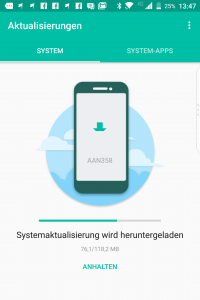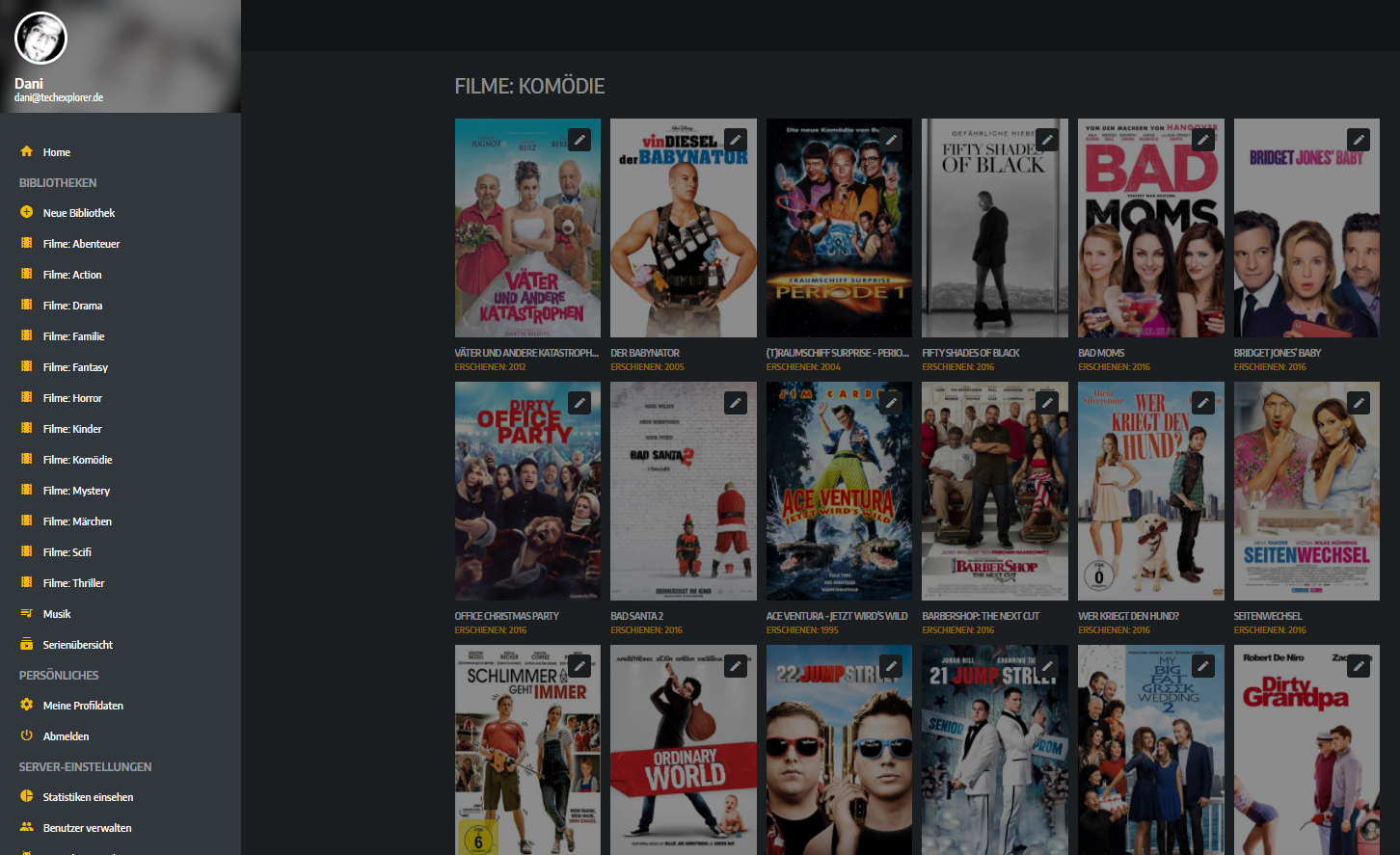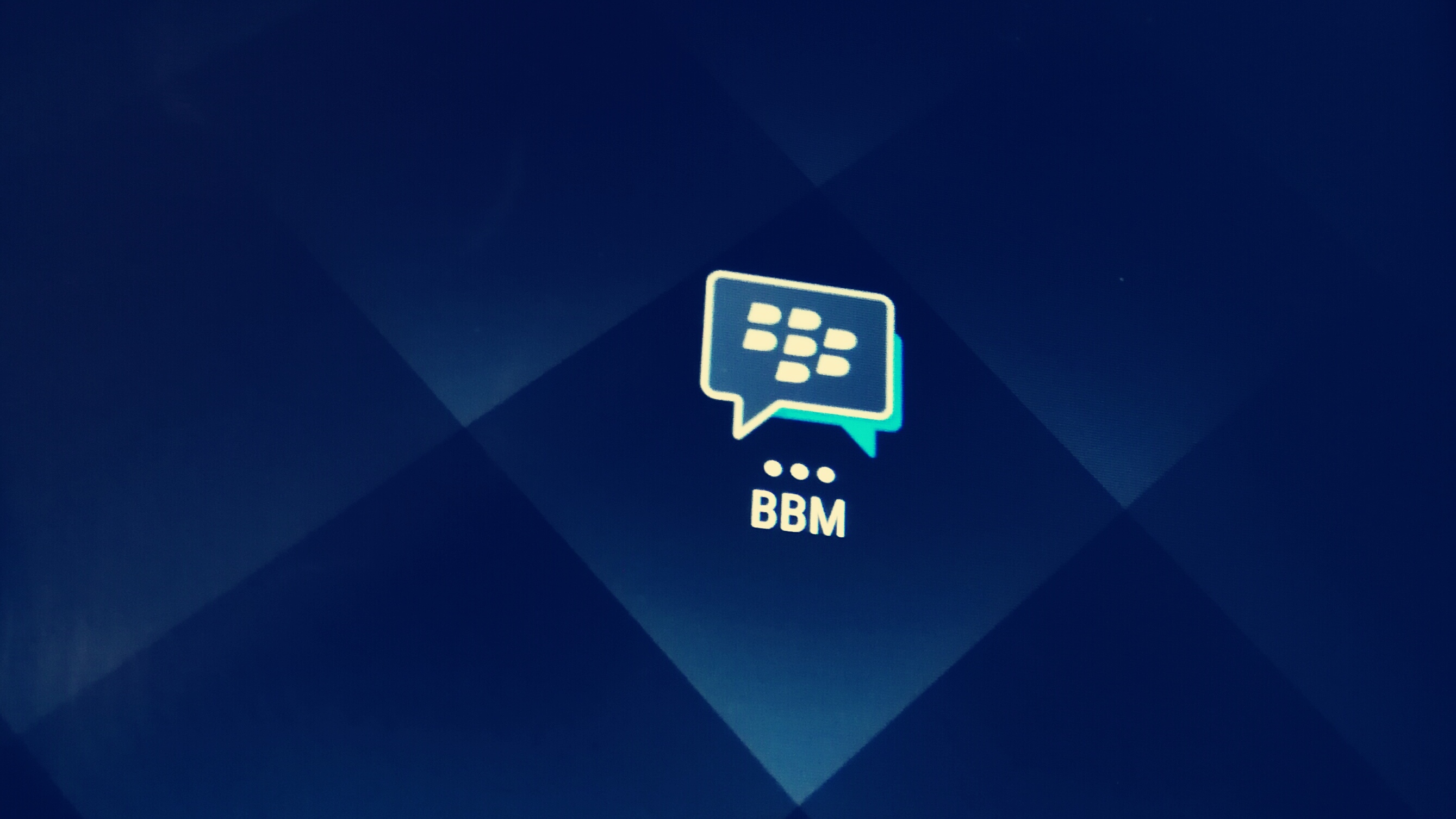
BlackBerry KEYone Sicherheitsupdate – Build AAO472 Das KEYone erhält September Sicherheitspatch
Das BlackBerry KEYone Sicherheitsupdate – Build AAO472 hat nun auch unsere Testgerät erreicht. Was sich alles geändert hat, findet ihr in diesem Beitrag.
 Mit dem neuesten BlackBerry KEYone Sicherheitsupdate – Build AAO472 – schließt BlackBerry diesmal wieder ganze 58 Sicherheitslücken.
Mit dem neuesten BlackBerry KEYone Sicherheitsupdate – Build AAO472 – schließt BlackBerry diesmal wieder ganze 58 Sicherheitslücken.
Die Build Version des Updates ist AAO472 und die Kernel-Version ist MPSS.TA.2.3.c1-00333-8953_GEN_PACK-1.107751.2.108406.1. Der Stand des Sicherheitsupdates ist der 5. September 2017.
BlackBerry KEYone Sicherheitsupdate – Build AAO472 Changelog
Mit diesem Sicherheitsupdate wurden folgende Lücken geschlossen:
| Summary | Description | CVE |
|---|---|---|
| Elevation of Privilege in WindowManager | The handling of the TYPE_TOAST window allowed for an attacker to overlay the screen, including permissions dialogs. | CVE-2017-0752 |
| Elevation of Privilege in Libminikin | A malformed font could cause memory corruption by providing unsorted cmap entries. | CVE-2017-0755 |
| Remote Code Execution in Mediaserver | In SoftAACEncoder2.cpp in SoftAACEncoder2::onQueueFilled, the allocation is of a previously set size but a memcpy follows that is of an attacker-controlled size. | CVE-2017-0756 |
| Remote Code Execution in Mediaserver | In decoder/ih264d_api.c in ih264d_fmt_conv_420sp_to_420sp, there is no bounds check before the memcpy, which can lead to an OOB write that could result in arbitrary remote code execution in a privileged process. | CVE-2017-0757 |
| Remote Code Execution in Mediaserver | n ihevcd_fmt_conv.c in ihevcd_fmt_conv, a memcpy is called in a loop without checking the size of the destination buffer, which can lead to an OOB write that could result in arbitrary remote code execution in a privileged process. | CVE-2017-0758 |
| Remote Code Execution in Mediaserver | In SoftMPEG2.cpp, in SoftMPEG2::deInitDecoder, ps_mem_rec->pv_base is freed; but it is later used in impeg2d_api_main.c resulting in a use-after-free, which could result in arbitrary remote code execution in a privileged process. | CVE-2017-0759 |
| Remote Code Execution in Mediaserver | A badly initialized decoder can lead to memory corruption, which could result in arbitrary remote code execution in a privileged process. | CVE-2017-0760 |
| Remote Code Execution in Mediaserver | In decoder/ih264d_process_pslice.c in ih264d_init_ref_idx_lx_b, u1_max_lt_index and u1_min_lt_index can be > 255, which can lead to an overflow in reference list creation, leading to an OOB write occurs which could result in arbitrary remote code execution in a privileged process. | CVE-2017-0761 |
| Remote Code Execution in Mediaserver | In decoder/ihevcd_parse_headers.c in ihevcd_fmt_conv, pu1_y_dst is too small due to an invalid crop, which can lead to an OOB write that could result in remote arbitrary code execution in a privileged process. | CVE-2017-0762 |
| Remote Code Execution in Mediaserver | In common/arm/ihevc_intra_pred_filters_luma_mode_11_to_17.s, in ihevc_intra_pred_luma_mode_11_to_17_a9q, the idx can go OOB, leading to an OOB write, which could result in remote arbitrary code execution in a privileged process. | CVE-2017-0763 |
| Remote Code Execution in Mediaserver | In Tremolo/res012.c in res_inverse alloca is used with a direct multiplication which could result in an integer overflow. Thus a small stack buffer is allocated but an OOB write occurs which can result in an RCE in privileged process. | CVE-2017-0764 |
| Remote Code Execution in Mediaserver | In mpeg2dec/SoftMPEG2.cpp in getMinTimestampIdx, a timeStampIdx of -1 ends up corrupting mFlushOutBuffer, which is then freed and could result in arbitrary remote code execution in a privileged process. | CVE-2017-0765 |
| Remote Code Execution in Mediaserver | In jpgfile.c in ReadJpegSections, an OOB write occurs into the Sections[SectionsRead].Type field which could result in arbitrary remote code execution in an unprivileged process | CVE-2017-0766 |
| Elevation of Privilege in Mediaserver | In lvm/wrapper/Bundle/EffectBundle.cpp in Equalizer_getParameter, an integer overflow can occur if pValueSize == 0, which can later lead to an OOB write that could result in arbitrary remote code execution in a privileged process. | CVE-2017-0767 |
| Elevation of Privilege in Mediaserver | In lvm/wrapper/Reverb/EffectReverb.cpp in Reverb_command, there is no check of the size of pReplyData. Thus if replySize is set to 4, it can return a 4-byte OOB write, which could result in local arbitrary code execution in a privileged process. | CVE-2017-0768 |
| Elevation of Privilege in Mediaserver | In libmediaplayerservice/MediaPlayerService.cpp in several functions, 2 threads can access the sp pointer without locks. | CVE-2017-0770 |
| Denial of Service in Mediaserver | In decoder/ih264d_parse_slice.c in ih264d_frm_to_fld, pu1_col_zero_flag_start can be NULL which can lead to a remote denial of service. | CVE-2017-0772 |
| Denial of Service in Mediaserver | In decoder/ihevcd_parse_slice.c in ihevcd_parse_slice_data, PU sizes do not account for skipped error clips. | CVE-2017-0773 |
| Denial of Service in Mediaserver | In libstagefright/MPEG4Extractor.cpp, if readAt fails to find the next moof box, the chuck_size read will be 0 and the offset will never increase. | CVE-2017-0774 |
| Denial of Service in Mediaserver | In mpeg2ts/ESQueue.cpp in ElementaryStreamQueue::dequeueAccessUnitAAC, aac_frame_length can be set to 0 resulting in a infinite loop, which can lead to a remote denial of service. | CVE-2017-0775 |
| Denial of Service in Mediaserver | In decoder/ih264d_parse_bslice.c (and several other files) in ih264d_fill_bs1_16x16mb_bslice, ppv_map_ref_idx_to_poc_l1 is not always initialized. | CVE-2017-0776 |
| Denial of Service in Mediaserver | In arm-wt-22k/lib_src/eas_wtsynth.c in WT_Interpolate, pSamples can increment past the end of the actual buffer leading to an OOB read, which could lead to a remote denial of service. | CVE-2017-0777 |
| Denial of Service in Mediaserver | In MPEG4Extractor.cpp in MPEG4Extractor::parse3GPPMetaData, in the yrrc box, an OOB read can occur, which can lead to a remote denial of service. | CVE-2017-0778 |
| Information Disclosure in Mediaserver | In BufferProviders.cpp in ReformatBufferProvider::copyFrames, there is no check of the size of the copy compared to the src buffer. | CVE-2017-0779 |
| Elevation of Privilege in NFC | The BeamShareActivity was not verifying that an application had been granted the READ_EXTERNAL_STORAGE permission when processing a File URI intent. | CVE-2017-0784 |
| Elevation of Privilege in Broadcom Wi-Fi Driver | The wl_escan_handler() function of the Broadcom wireless driver has insufficient checks for integer overflows. A bad request from the wireless firmware could cause insufficient memory allocation, memory overflows, and arbitrary code execution. | CVE-2017-0786 |
| Elevation of Privilege in Broadcom Wi-Fi Driver | The dhd_pno_process_epno_result() function of the Broadcom wireless driver multiplies an unsigned count value by sizeof(dhd_epno_results_t) to get the size of a memory allocation. If the count sent by the wireless firmware is too large and the multiplication overflows, it will copy elements past the end of the allocated buffer, leading to memory corruption and potential arbitrary code execution. | CVE-2017-0787 |
| Elevation of Privilege in Broadcom Wi-Fi Driver | The dhd_handle_swc_evt() function of the Broadcom wireless driver allocates memory before checking for some failure cases. In those failure cases, the allocated memory is preserved, but the required size can be changed before calling the function again, but the old allocation is used. If the new size is larger, the allocated buffer might overflow, leading to kernel memory corruption and potential arbitrary code execution. | CVE-2017-0789 |
| Elevation of Privilege in Broadcom Wi-Fi Driver | The dhd_process_full_gscan_result() function of the Broadcom wireless driver does not check for integer overflow when using the bi_length parameter. An overflow in this parameter may lead to kernel memory corruption and potential arbitrary code execution. | CVE-2017-0790 |
| Elevation of Privilege in Broadcom Wi-Fi Driver | The wl_notify_rx_mgmt_frame() function of the Broadcom wireless driver does not check for integer underflow in data lengths of incoming events. A bad event from the wireless firmware could cause a very large copy, leading to memory corruption in the kernel and arbitrary code execution. | CVE-2017-0791 |
| Information Disclosure in Broadcom Wi-Fi Driver | The dhd_rtt_event_handler() function of the Broadcom wireless driver does not properly check the tlvs_len parameter of incoming event data. A bad event from the wireless firmware could cause an out-of-bounds read in mapped kernel memory. | CVE-2017-0792 |
| Remote Code Execution in Kernel | The inet_csk_clone_lock() function has a double-free vulnerability that can be triggered by a remote attacker. | CVE-2017-8890 |
| Elevation of Privilege in Kernel | The dccp_v6_request_recv_sock function in net/dccp/ipv6.c in the Linux kernel through 4.11.1 mishandles inheritance, which allows local users to cause memory corruption that might lead to arbitrary code execution. | CVE-2017-9076 |
| Information Disclosure in Kernel | The do_check function in kernel/bpf/verifier.c in the Linux kernel before 4.11.1 does not make the allow_ptr_leaks value available for restricting the output of the print_bpf_insn function, which allows local users to obtain sensitive address information via crafted bpf system calls. | CVE-2017-9150 |
| Elevation of Privilege in Kernel IPX protocol Driver | The ipxitf_ioctl function in net/ipx/af_ipx.c in the Linux kernel through 4.11.1 mishandles reference counts, which allows local users to cause use-after-free errors or other memory corruption. | CVE-2017-7487 |
| Denial of Service in Kernel | The tcp_splice_read function in net/ipv4/tcp.c in the Linux kernel before 4.9.11 allows remote attackers to cause a denial of service (infinite loop and soft lockup) via vectors involving a TCP packet with the URG flag. | CVE-2017-6214 |
| Elevation of Privilege in Kernel | The fanout_add() function does not have sufficient mutex locking around using shared packet_rollover objects. Concurrent use could lead to use-after-free errors or other kernel memory corruption, enabling arbitrary code execution. | CVE-2017-6346 |
| Information Disclosure in Kernel | The ip6gre_err() function does not properly account for the length of the IPv6 header, and reads kernel memory outside the bounds of incoming data. | CVE-2017-5897 |
| Information Disclosure in Kernel File System | In the ext4 filesystem implementation, a crash can interrupt the journal write after the data itself is written. An attacker that creates a new file after a crash may gain access to that data. | CVE-2017-7495 |
| Information Disclosure in Kernel | Incorrect error handling in the set_mempolicy and mbind compat syscalls in mm/mempolicy.c in the Linux kernel through 4.10.9 allows local users to obtain sensitive information from uninitialized stack data by triggering failure of a certain bitmap operation | CVE-2017-7616 |
| Elevation of Privilege in Kernel SCSI Driver | The sg_ioctl() function does not have sufficient mutex protection around global data writes. Concurrent access to this ioctl can cause use-after-free errors, double-free errors, and other memory corruption issues in the kernel that could lead to arbitrary code execution. | CVE-2017-0794 |
| Elevation of Privilege in Qualcomm Memory subSystem | Passing in too large a value into the ION memory allocator results in the integer being truncated, leading to memory corruption. | CVE-2017-9725 |
| Elevation of Privilege in Qualcomm | The ION driver allows the user to specify an address (possibly in kernel space) to write a NULL to. | CVE-2017-9724 |
| Elevation of Privilege in Qualcomm Audio Driver | There is a possible out-of-bounds write in omx_aac_aenc::fill_this_buffer_proxy | CVE-2017-9720 |
| Elevation of Privilege in Qualcomm GPU Driver | There is a possible integer overflow in the GPU driver that could lead to an out-of-bounds write. | CVE-2017-8250 |
| Elevation of Privilege in Qualcomm Audio Driver | In function msm_compr_ioctl_shared, variable ddp->params_length could be accessed and modified by multiple threads, while it is not protected with locks, allowing a race condition that could result in an out-of-bounds write. | CVE-2017-9677 |
| Information Disclosure in Qualcomm File System | There is possible information disclosure when reading from debugfs drivers for msm_bus, due to a race condition and a use-after-free. | CVE-2017-9676 |
| Elevation of Privilege in Qualcomm WLAN Driver | During wlan calibration data store and retrieve operations, there is a race condition that could lead to arbitrary code execution. | CVE-2017-8280 |
| Elevation of Privilege in Qualcomm Camera Driver | In the camera driver, the num_streams value passed to msm_isp_check_stream_cfg_cmd and msm_isp_stats_update_cgc_override wasn't bounds checked, resulting in a possible out-of-bounds write. | CVE-2017-8251 |
| Elevation of Privilege in Qualcomm Camera Driver | The reference count on the camera driver has some operations that aren't sufficiently atomic. | CVE-2017-8247 |
| Elevation of Privilege in Qualcomm Camera Driver | In the msm_isp_update_stats_stream function in the camera driver, there is a possible out-of-bounds write due to an incorrect bounds check. | CVE-2017-9720 |
| Elevation of Privilege in Qualcomm Video Driver | In the function msm_dba_register_client, if the client registration failed, it would be freed. However, the client was not removed from the list. Use-after-free would occur when traversing the list next time. | CVE-2017-8277 |
| Information Disclosure in Qualcomm Automotive multimedia | A query function in the DCI driver lacked the same locking as the the rest of the driver, so a query could interrupt the teardown function and read from freed memory. | CVE-2017-8281 |
| Remote Code Execution in Mediaserver | A logical error in the bnep_data_ind function results in a copy operation overflowing the buffer by 8 bytes, using remotely provided data. | CVE-2017-0781 |
| Remote Code Execution in Mediaserver | The vulnerability is a heap buffer overflow in bnep_process_control_packet in which unvalidated data is used in calculating the length of a copy operation. This allows for a remote attacker to overflow the allocated buffer. | CVE-2017-0782 |
| Information Disclosure in Mediaserver | An attacker could initiate a PAN connection to an Android phone, allowing them to initiate a reverse tether and act as a man-in-the-middle for network traffic | CVE-2017-0783 |
| Information Disclosure in Mediaserver | The process_service_search function allowed for a remote attacker to leak stack information from the Bluetooth network code through the use of deliberately malformed continuation requests. | CVE-2017-0785 |
 BlackBerry empfiehlt auf die neueste Version upzudaten.
BlackBerry empfiehlt auf die neueste Version upzudaten.
„We recommend users update to the latest available software build.
BlackBerry releases security bulletins to notify users of its Android smartphones about available security fixes; see BlackBerry.com/bbsirt for a complete list of monthly bulletins. This advisory is in response to the Android Security Bulletin (September 2017) and addresses issues in that bulletin that affect BlackBerry powered by Android smartphones.“
Das BlackBerry KEYone Update ist 118,2 MB groß und kommt per OTA auf eure BlackBerry KEYone Geräte. Um das Update zu erhalten, geht in eure „Aktualisierungen“ App und sucht dort nach dem Update.
Hat Dir dieser Artikel gefallen, dann teile ihn doch mit Deinen Freunden …


